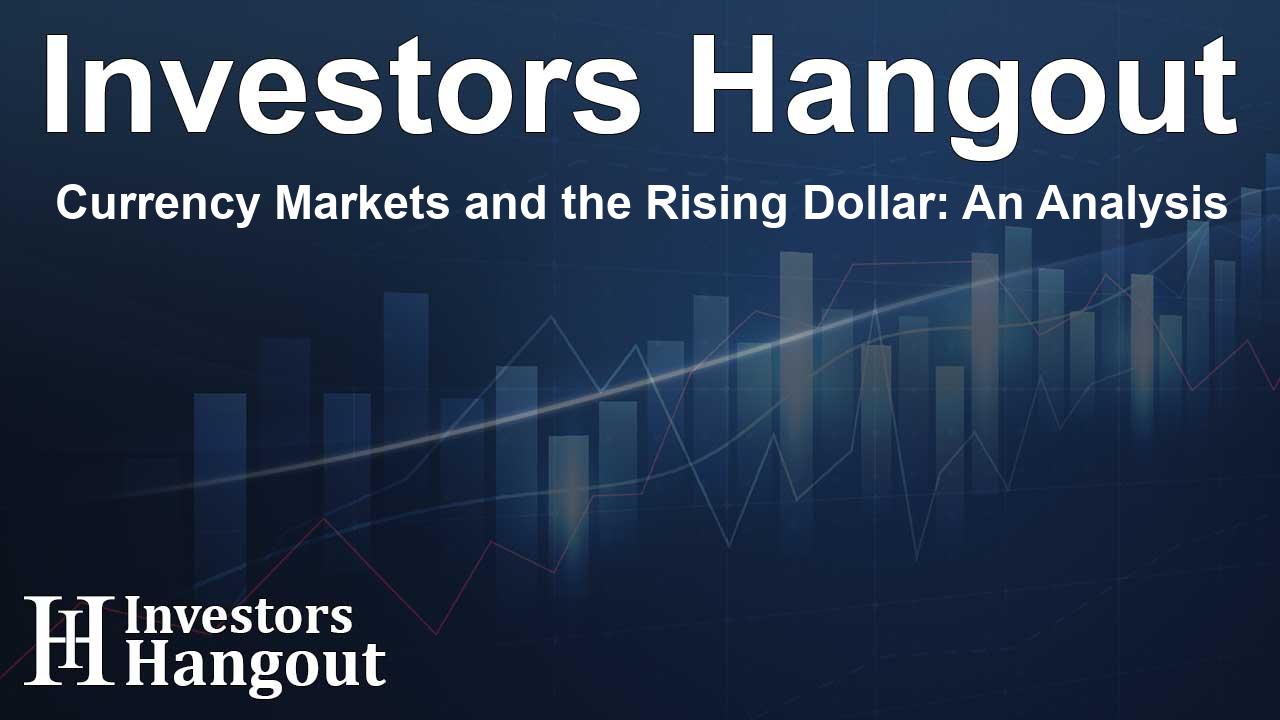Currency Markets and the Rising Dollar: An Analysis

Currency Markets as a New Force
The role of currency markets is evolving, possibly stepping in as a significant player against tariff hikes that are expected from the incoming U.S. administration. While bond vigilantes have traditionally been the spotlight of market protests, it seems that the foreign exchange markets are ready to take the stage.
Impact of Proposed Tariffs
With protectionist trade proposals on the horizon—including a universal import tariff and specific charges targeting imports from certain countries—the foreign exchange landscape has begun to react. The dollar has surged to notable highs against key trading rivals, aiming to offset the very competitiveness that these tariff plans intend to protect.
Effects on Overseas Exporters
The strengthening of the dollar has critical consequences for overseas exporters. A higher dollar often allows these exporters to maintain their competitive edge in the U.S. market by adjusting their pricing strategy. Despite the anticipated tariffs, a rising dollar means that sales priced in foreign currencies become more appealing, thereby enabling exporters to keep prices stable in the U.S. and maintain their market share.
Market Reactions to Economic Predictions
Analyzing the economic implications of the proposed tariffs reveals a circular logic: as these tariffs may hinder international confidence and adjust U.S. economic demand, the Federal Reserve's decisions regarding policy rates will become even more crucial. If tariff and tax policies become more aggressive, concerns surround the Federal Reserve's approach to interest rate adjustments.
Interest Rate Dynamics
Deutsche Bank projects a scenario where the Federal Reserve's rates remain relatively unchanged to avoid upsetting the economic balance. Meanwhile, European Central Bank rates are expected to decrease, possibly in the range of 1.5%. This disparity in policies could significantly influence investment decisions, leaving investors more inclined to view the dollar as a secure asset.
Global Investment Trends
The allure of U.S. financial assets has attracted a wave of global investments. Over the past two decades, America has seen its net international investment position rise, reaching an impressive $22.5 trillion. This surge appears disconnected from the expansive trade deficits, suggesting a deeper conviction amongst investors regarding the strength and stability of U.S. markets.
Insights into A Potential Reckoning
While the short-term outlook appears favorable for the dollar, economic principles suggest that such an extraordinary situation might not be sustainable indefinitely. Increased tariffs could exacerbate existing problems rather than resolve them. These dynamics could prompt considerations surrounding monetary policy adjustments and what actions the Federal Reserve may take moving forward.
The Conundrum Ahead
As the situation develops, there is a sense of uncertainty. The implications of escalating tariffs and the rising dollar are significant, and how they intertwine will define the future of U.S. currency and trade. Observers remain alert as these complex economic factors unfold, keeping an eye on both domestic and international repercussions.
Frequently Asked Questions
What are currency markets currently reacting to?
Currency markets are responding to the proposed tariff hikes by the incoming U.S. administration, particularly in relation to the value of the dollar against other currencies.
How do stronger dollar effects export markets?
A rising dollar can benefit overseas exporters because it allows them to keep prices in dollars low while maintaining competitiveness.
What is the expected impact on interest rates?
Market expectations indicate that the Federal Reserve's interest rates may remain higher while international counterparts might reduce theirs, creating a disparity that could affect investments.
What trends are tied to global investments in the U.S.?
Global investments in U.S. assets have increased due to perceived stability and performance, countering issues like trade deficits.
Could tariffs lead to broader economic consequences?
There is speculation that increasing tariffs might lead to potential economic imbalances and worsening conditions rather than resolving trade issues.
About Investors Hangout
Investors Hangout is a leading online stock forum for financial discussion and learning, offering a wide range of free tools and resources. It draws in traders of all levels, who exchange market knowledge, investigate trading tactics, and keep an eye on industry developments in real time. Featuring financial articles, stock message boards, quotes, charts, company profiles, and live news updates. Through cooperative learning and a wealth of informational resources, it helps users from novices creating their first portfolios to experts honing their techniques. Join Investors Hangout today: https://investorshangout.com/
Disclaimer: The content of this article is solely for general informational purposes only; it does not represent legal, financial, or investment advice. Investors Hangout does not offer financial advice; the author is not a licensed financial advisor. Consult a qualified advisor before making any financial or investment decisions based on this article. The author's interpretation of publicly available data shapes the opinions presented here; as a result, they should not be taken as advice to purchase, sell, or hold any securities mentioned or any other investments. The author does not guarantee the accuracy, completeness, or timeliness of any material, providing it "as is." Information and market conditions may change; past performance is not indicative of future outcomes. If any of the material offered here is inaccurate, please contact us for corrections.